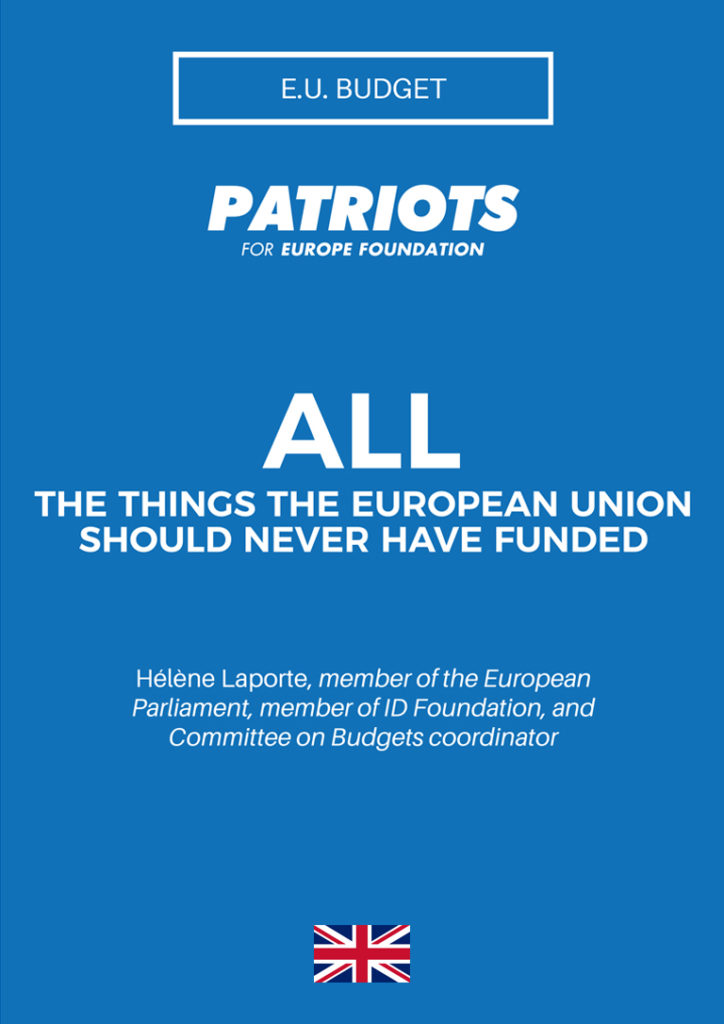E.U Budget
All the things the european union should never have funded
1/ Turkey
This taboo subject within the EU is long overdue and must be exposed to public view: the restitution by Turkey of the funds paid out under the Instrument for Pre-Accession Assistance.
This recovery could be based on two legal grounds.
Firstly, it is highly unlikely that Turkey will ever become a member of the EU due to the complete interruption of negotiations since 2019, and to its pan-Islamic and Neo-Ottoman policy in the Balkans, the Middle East, and Central Asia, which is at odds with European interests.
Financial contributions to Turkey are not justified, given its lack of EU membership.
Secondly, the funds have been poorly used owing to negligence resulting in a lack of results.
This is the conclusion of the European Court of Auditors’ special report n° 7/2018, which states that the funds spent have barely addressed a range of basic needs, such as the fight against major corruption or organised crime.
All in all, Turkey has received almost €44 billion through the various programmes and agreements. This is a colossal amount considering that Turkey has regularly shown itself to be hostile towards us.
At the very least, the EU could have suspended the payment of these funds under Regulation 1085/2006 due to the manifest failure to respect the principles of democracy and human rights. The European Commission will also have to explain the handling of the majority of the funds entrusted to the Turkish authorities, raising the risk of poor and opaque management.
On closer inspection, a further provocation is that €400 million over the year 2020 were intended to grant cash transfers to more than 1.7 million migrants! The negotiations with Turkey are a political and financial failure for the EU, which has spent lavishly on a country that does not respect our fundamental values.
The EU must hold Turkey to account instead of threatening to impose pseudo-sanctions.
Study by Hélène Laporte, Member of the European Parliament
Interview published by the Identity and Democracy Foundation


